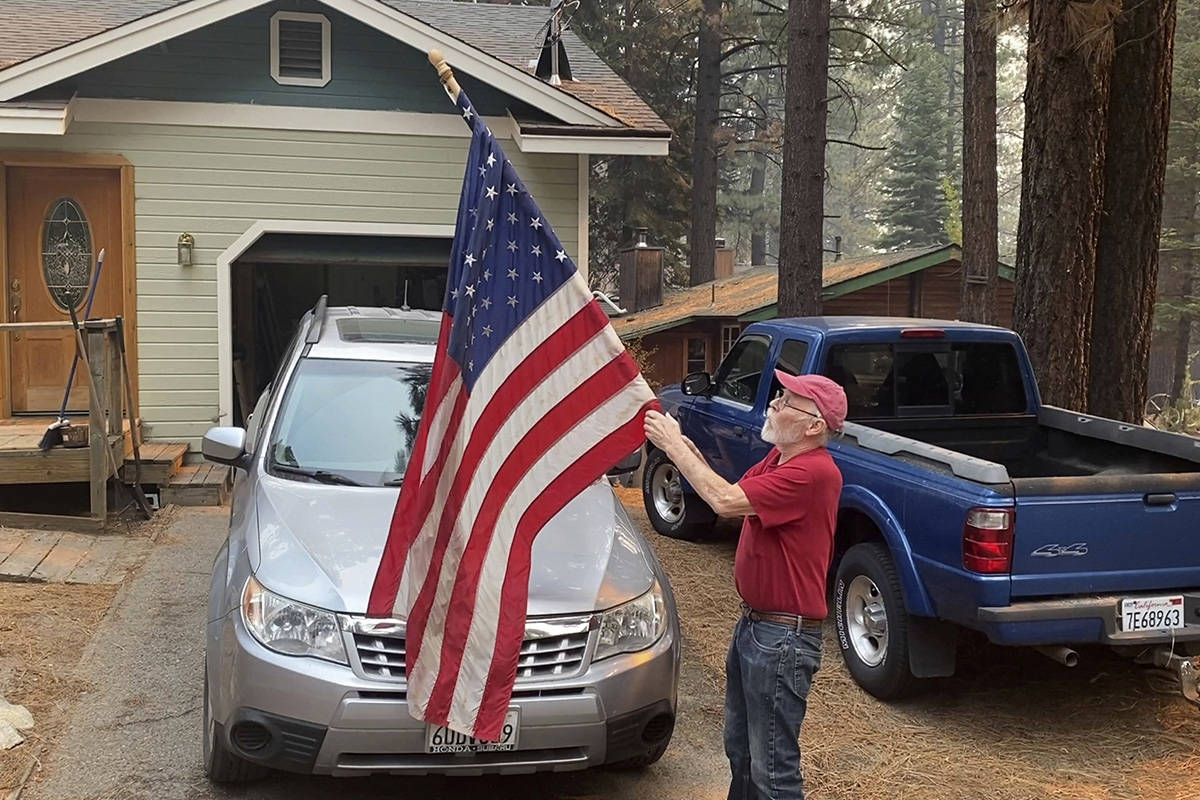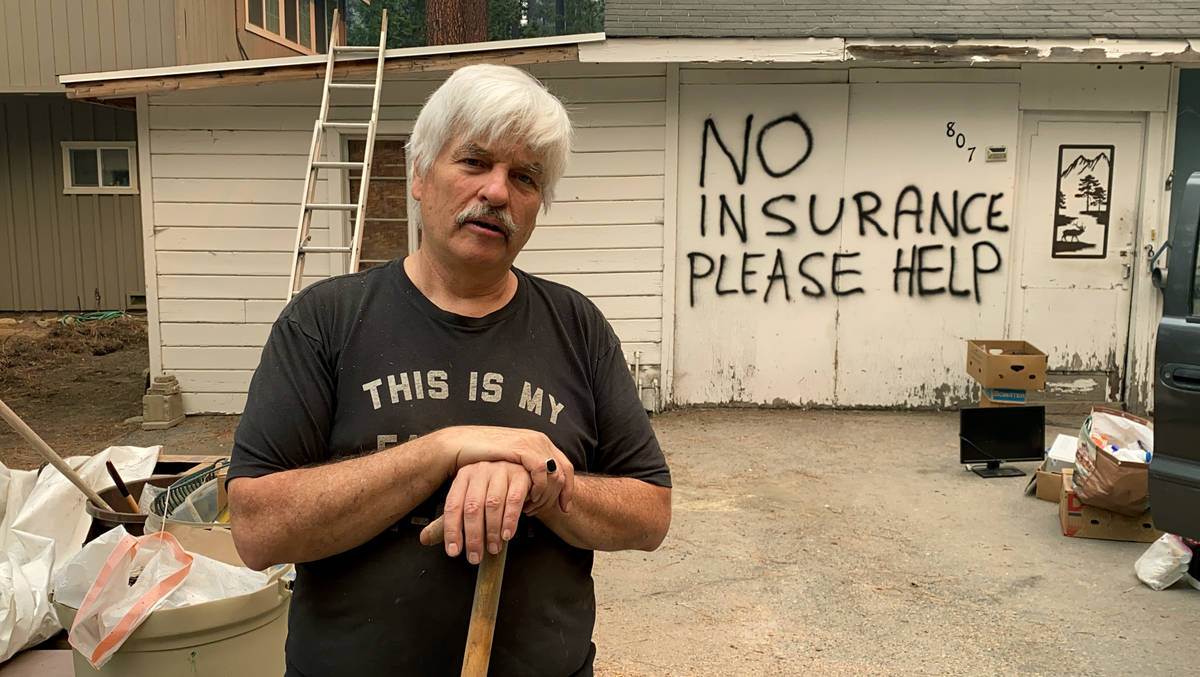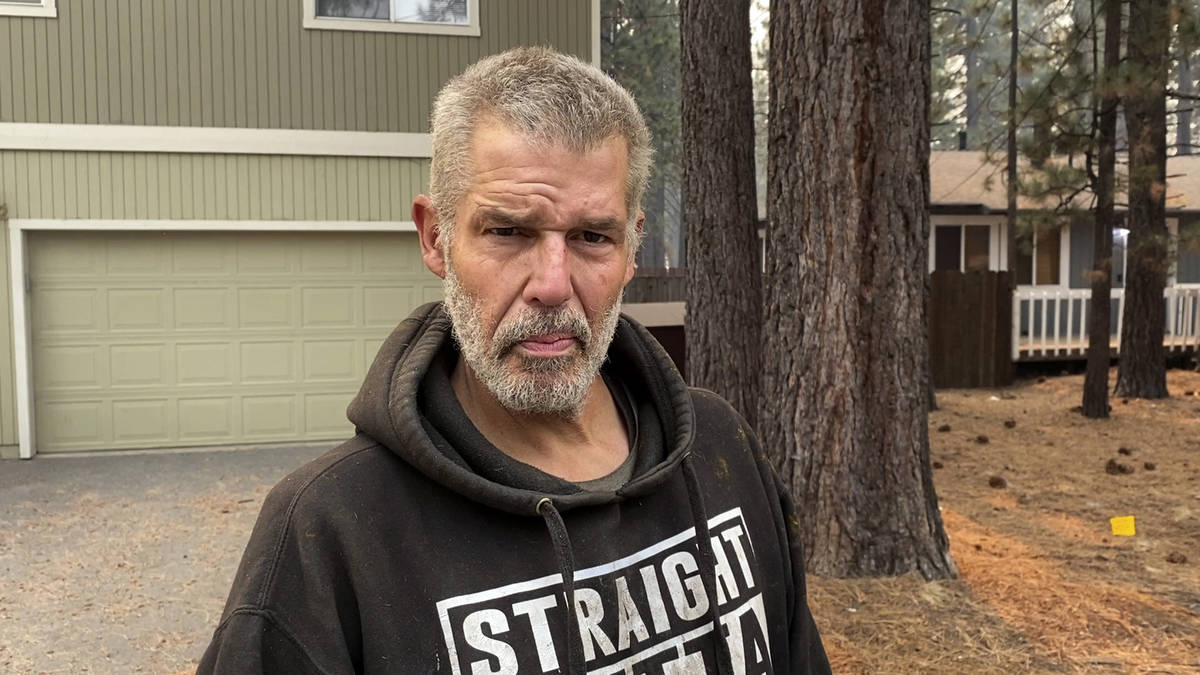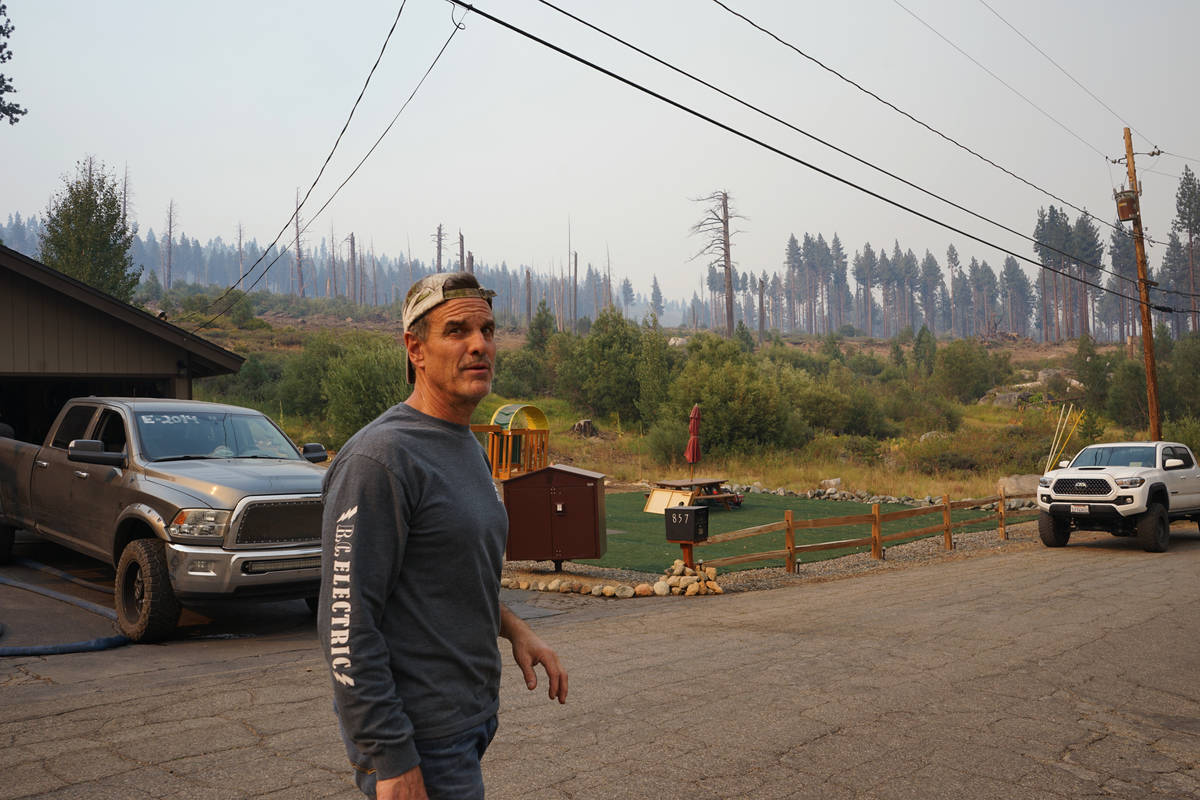As fire nears, some Lake Tahoe residents buck order to flee
SOUTH LAKE TAHOE, Calif. — While most of his neighbors fled South Lake Tahoe as a major wildfire charged closer to town, Tod Johnson stayed put.
The 66-year-old retiree swept up pine needles from the yard and roof of his home Tuesday after spending the night keeping an eye on reports of the advancing flames. The police knew he was there, but told him that when he leaves, he can’t come back until it’s safe.
“I promised my kid I’d be out of here as soon as I saw any flames anywhere. And I’m trying to be here to help the firefighters,” he said.
After seeing gusty winds in the forecast as the fire moved closer to his Lake Tahoe community, Johnson said he planned to leave Tuesday afternoon to join his girlfriend in Reno, once he had packed up a few precious items to take with him.
While more than 20,000 residents and likely thousands of tourists packed roads leading out of Lake Tahoe on Monday to flee the Caldor Fire closing in on the resort community, a handful of people decided to buck the mandatory evacuation orders and stay behind.
With many emergencies, from wildfires to hurricanes, most people choose to comply with orders to leave. However, there are almost always a few holdouts, and their reasons for staying vary.
As powerful Hurricane Ida bore down on Louisiana over the weekend, some residents said they couldn’t afford to leave because they didn’t have money for gas or a hotel room.
Deciding to stay behind
In the West, where bigger and hotter wildfires rage through the forests each year, more communities find themselves staring down evacuation orders. There are invariably some who decide to stay put, against all advice from government and emergency officials.
The decision to stay behind can complicate firefighters’ efforts and leave them scrambling to save lives instead of just property.
The Caldor Fire, which has burned nearly 300 square miles since breaking out Aug. 14 in California, has been moving closer to Nevada’s casino-dotted side of Lake Tahoe, prompting mandatory evacuations in small communities and on Monday, the city of South Lake Tahoe.
The city of 22,000 sits on the southern edge of the normally idyllic, deep blue lake that for weeks has been choked by thick smoke and haze as the flames came closer. When Monday’s evacuation order was issued, only about 20 of the city’s residents refused to evacuate, according to city spokeswoman Lindsey Baker, with most jamming the roads to flee.
Of the few who stayed behind, some said they wanted to stick it out, pack more belongings and guard their property a little longer.
Bill Roberts said he had planned to leave South Lake Tahoe with everyone else but decided to postpone his trip because he was tired and his back hurt. He then delayed it again when his cat ran off.
“Depending what the wind does, I might become a little more mildly concerned today. But I’m hoping at some point I just nab that cat and be out of here like a shot,” he said.
Nowhere else to go
Some locals stayed because they felt they had nowhere else to go, even though officials opened emergency shelters on both sides of the California-Nevada state line.
David Duet, a South Lake Tahoe resident who is homeless, camps in a meadow with half a dozen friends and said they “don’t really have anywhere else to go.” He dismissed the idea of fleeing to nearby Carson City, saying his group didn’t know anyone in the Nevada capital, and declined a ride a stranger offered him Monday.
Duet said he and his friends are checking the internet and radio for updates on the fire and plan to ride bicycles out or catch a ride from someone if it gets really bad.
“No one’s stupid enough to stay when the flames are right mounting around the outside of the meadow. So as long as the smoke isn’t so bad and the flames aren’t real close, we’re going to stick it out, you know?” Duet said. “But if not, we’ll hightail it out. We’ll get out.”
The mandatory orders are typically enforced by local sheriff’s offices, though it’s unclear how often officials enforce the orders with threats of arrest.
In early August, as a wildfire burning further north in California approached the town of Westwood, the local sheriff’s office reported it arrested three people who stayed in defiance of an evacuation order, according to the Los Angeles Times. The three people were taken to jail, cited and released.
Officials have not reported any arrests related to the evacuation orders near Lake Tahoe.
Defending their homes
Russ Crupi decided to remain to defend his and his neighbors’ homes in the mobile home park that he and his wife maintain and manage for a living. While his wife and children evacuated to Reno, he stayed and arranged sprinklers and tractors around the park.
Law enforcement officers came by and took down his name and phone number as he explained he planned to stay and wait.
“I’m worried about what’ll be here when people come back. People want to come back to their houses and that’s what I’m gonna try to do,” he said.
Tonia Rhodes, who works as a server at a local casino, said she was anxious about her husband and upset about his decision to stay behind at their home in Meyers, south of Lake Tahoe, in defiance of an evacuation order.
Rhodes said her husband stayed at the home with four friends to try to defend it from encroaching flames. They already had to rebuild their home once, after the 2007 Angora Fire tore through the neighborhood.
As she sat at the bar of the MontBleu casino resort in Stateline, waiting to see if it too might fall under an evacuation order, Rhodes said she didn’t think she could continue living with the anxiety of the inevitable next fire but couldn’t envision herself moving somewhere else.
“I don’t want to do this anymore,” she said. “I don’t even know what to do. Where would I go?”

























